Related Research Articles
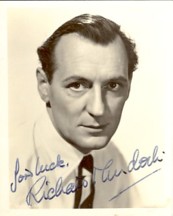
Richard Bernard Murdoch was an English actor and entertainer.
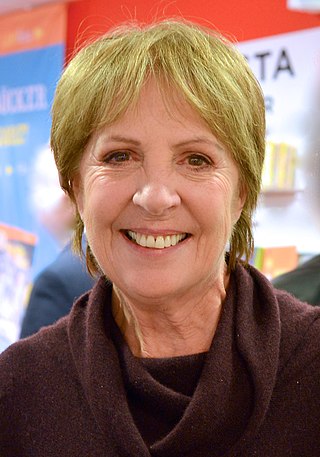
Dame Penelope Alice Wilton, Lady Holm is an English actress.
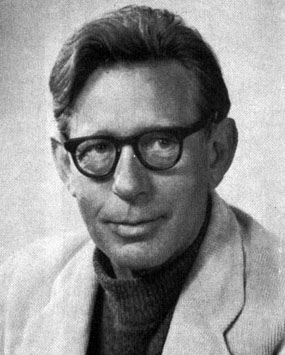
Laurence Edward Alan Lee, was an English poet, novelist and screenwriter, who was brought up in the small village of Slad in Gloucestershire.

Frederick Louis MacNeice was an Irish poet, playwright and producer for the BBC. His poetry, which frequently explores themes of introspection, empiricism, and belonging, is considered to be among the greatest of twentieth century literature. Despite being renowned as a member of the Auden Group, he was also an independently successful poet with an influential body of work, which is replete with themes ranging from faith to mortality. His body of work was appreciated by the public during his lifetime, due in part to his relaxed but socially and emotionally aware style. Never as overtly or simplistically political as some of his contemporaries, he expressed a humane opposition to totalitarianism as well as an acute awareness of his roots.

Coral Edith Browne was an Australian-American stage and screen actress. Her extensive theatre credits included Broadway productions of Macbeth (1956), The Rehearsal (1963) and The Right Honourable Gentleman (1965). She won the 1984 BAFTA TV Award for Best Actress for the BBC TV film An Englishman Abroad (1983). Her film appearances included Auntie Mame (1958), The Killing of Sister George (1968), The Ruling Class (1972) and Dreamchild (1985). She was actor Vincent Price's third wife.

Mary Wimbush was an English actress whose career spanned sixty years.

Gloria Anna Holden was a British-born American film actress, best known for her role as Dracula's Daughter. She often portrayed cold society women.
Frances Day was an American actress and singer who achieved great popularity in the UK in the 1930s.

Helen Mack was an American actress. She started her career as a child actress in silent films, moving to Broadway plays and touring one of the vaudeville circuits. Her greater success as an actress was as a leading lady in the 1930s. She made the transition to performing on radio and then into writing, directing, and producing shows during the Golden Age of Radio. She later wrote for Broadway, stage and television. Her career spanned the infancy of the motion picture industry, the beginnings of Broadway, the final days of vaudeville, the transition to sound movies, the Golden Age of Radio, and the rise of television.

Chili Bouchier was an English film actress who achieved success during the silent film era, and went on to many screen appearances with the advent of sound films, before progressing to theatre later in her career.
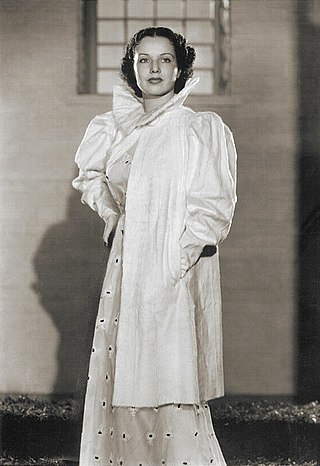
June Travis was an American film actress.
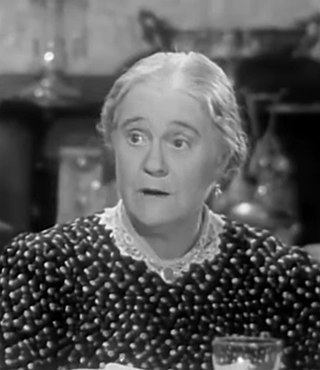
Mary Gordon was a Scottish actress who mainly played housekeepers and mothers, most notably the landlady Mrs. Hudson in the Sherlock Holmes series of movies of the 1940s starring Basil Rathbone and Nigel Bruce. Her body of work included nearly 300 films between 1925 and 1950.

Verna Martha Wentworth was an American actress. Her vocal variety led to her being called the "Actress of 100 Voices".

Jane Carr was the stage name of English stage and film actress Rita Brunstrom.
Loretta Nellie Clemens Tupper was an American singer, pianist and vaudevillian and radio actress., who later added television and film appearances to her impressive repertoire. In her early career she was known as Loretta Clemens and in her later career she was known as Loretta Tupper She featured in numerous television commercials and was famous for playing the old lady in the Fruit of the Loom television commercials from the 1980s. She was a character on the PBS television show Sesame Street called Mrs. Mae Trump in the 1980s. She played small roles in numerous movies.
Mayfair Melody is a 1937 British musical film, directed by Arthur B. Woods and starring popular bass-baritone singer Keith Falkner in the first of his three screen performances.

Vivienne Osborne was an American stage and film actress known for her work in Broadway theatre and in silent and sound films.
Love Up the Pole is a 1936 British comedy film directed by Clifford Gulliver and starring Ernie Lotinga, Vivienne Chatterton and Wallace Lupino. It was made at the Cricklewood Studios in London, and distributed by Butcher's Film Service which specialised in low-budget British films.
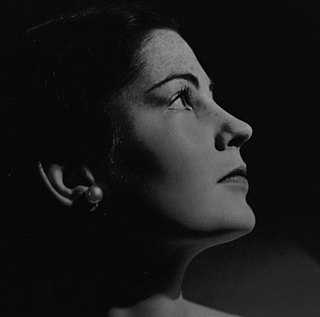
Micheline Patton was an Irish actress who worked on radio, stage and television from the mid-1930s to the mid-1960s.
The Dark Tower is a 1946 BBC Home Service radio play written, in verse, and produced by Louis MacNeice, with music composed for it by Benjamin Britten. Dramatist and author Robin Brooks, writing in The Guardian in 2017, called it "a landmark in radio drama".
References
- 1 2 3 Andrews, Cyrus (1947). Radio Who's Who. Pendulum Publications Ltd. p. 66.
- 1 2 "Vivienne Chatterton". BFI Films, TV and People. British Film Institute. Archived from the original on 14 March 2018. Retrieved 17 March 2018.
- ↑ "The Rose of Persia". BBC Genome. BBC. Retrieved 17 March 2018.
- ↑ "Hansel and Gretal". BBC Genome. BBC. Retrieved 17 March 2018.
- ↑ "Thomas and Sally". BBC Genome. BBC. Retrieved 17 March 2018.
- ↑ MacNeice p.144
- ↑ "Search - Vivienne Chatterton". BBC Genome. BBC. Retrieved 17 March 2018.
- ↑ Lowry, Michael (2003). Fighting Through to Kohima: A Memoir of War in India and Burma. Pen and Sword Books Ltd. p. XXV. ISBN 9781844158027.
- ↑ Doctor, Jennifer Ruth (1999). The BBC and Ultra-Modern Music, 1922-1936: Shaping a Nation's Tastes. Cambridge University Press. p. 334. ISBN 9780521661171.